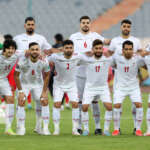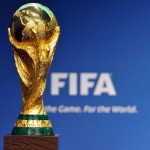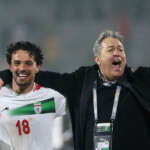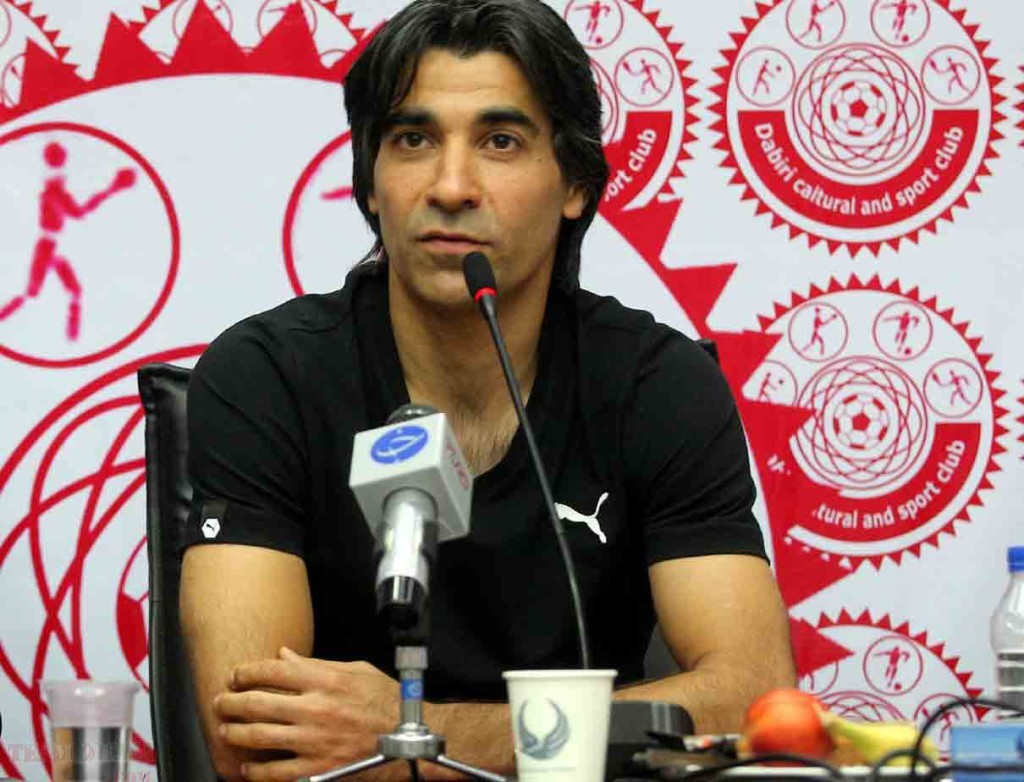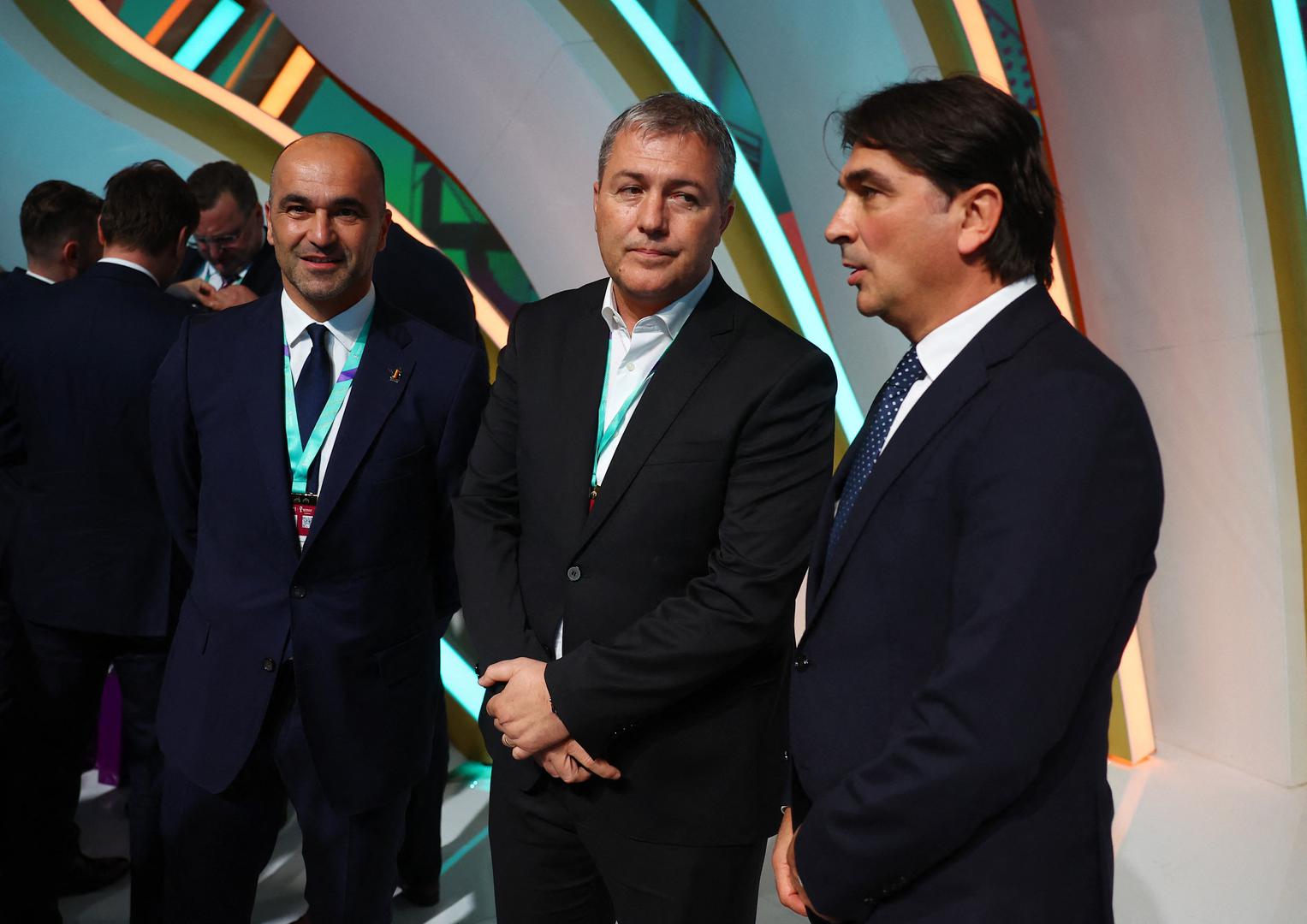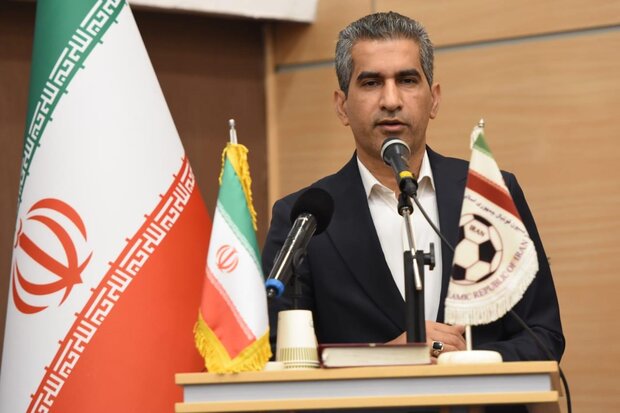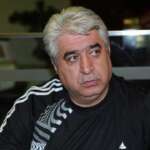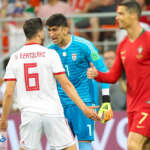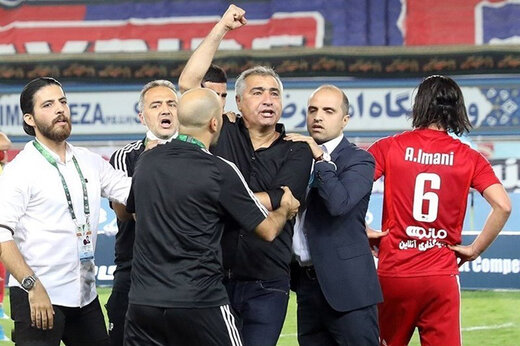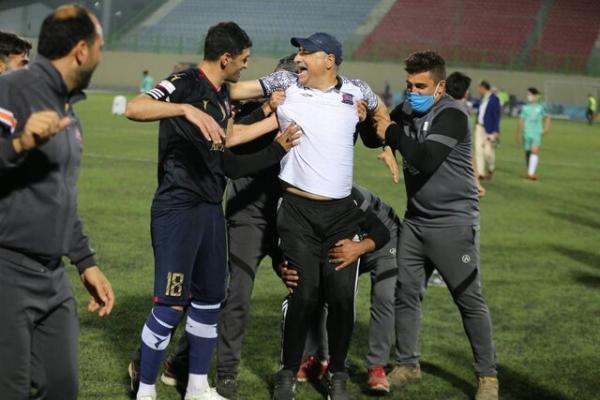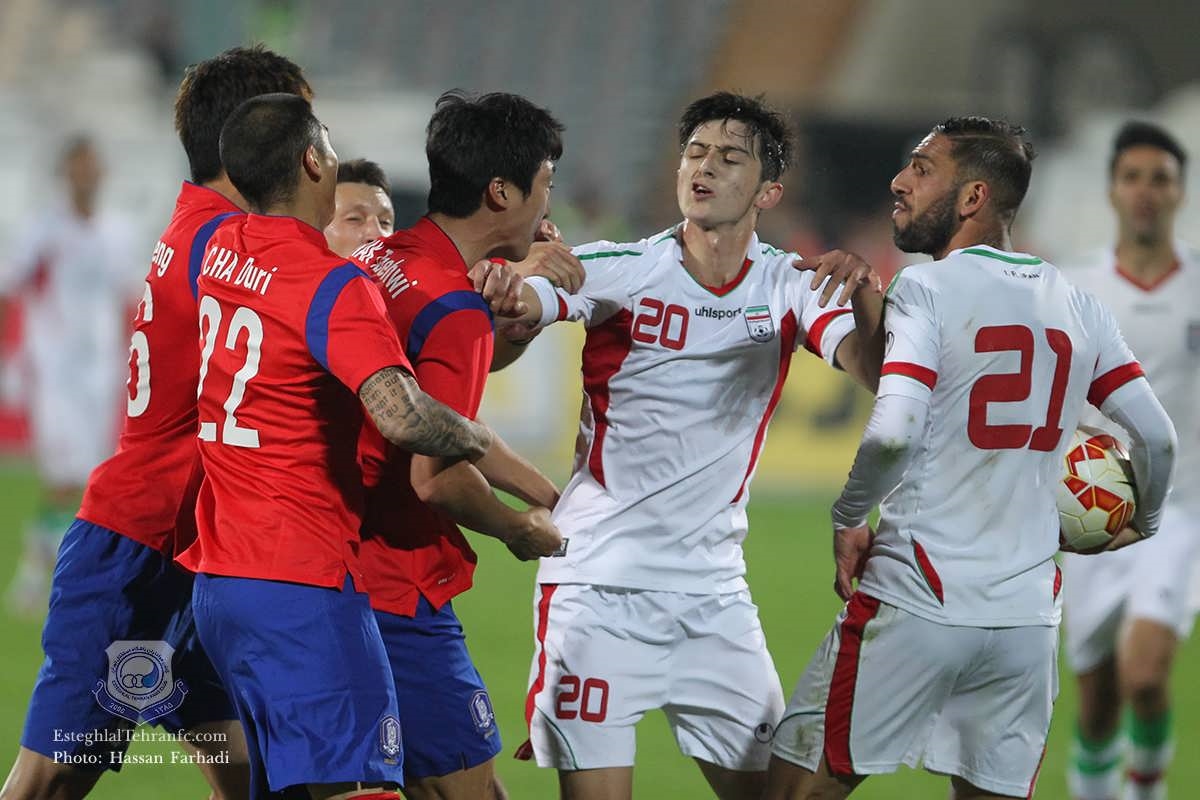Mehdi Taj once again succeeded in winning the majority votes (exactly the same number as his last election!) in the general assembly of the FFIRI to become The President in the 8th election and to manage the affairs of the country’s highest football institution for a period of two and a half years.
His selection fueled the rumor of the termination of Dragan Skocic’s contract as the head coach of the Team Melli once again leaving the Croatian coach in a state of stress and instability while the national team is preparing for the training camp in Austria including two much-needed friendly internationals against Uruguay and Senegal.
Skočić, who seems to take every opportunity to ensure his continuation on the bench of the best team of the Asian ranking and play in the FIFA 2022 World Cup, accommodates every request from the federation officials so that maybe the meeting with the hierarchy at the request of Hamid Estili can bring him closer and closer to this personal goal.
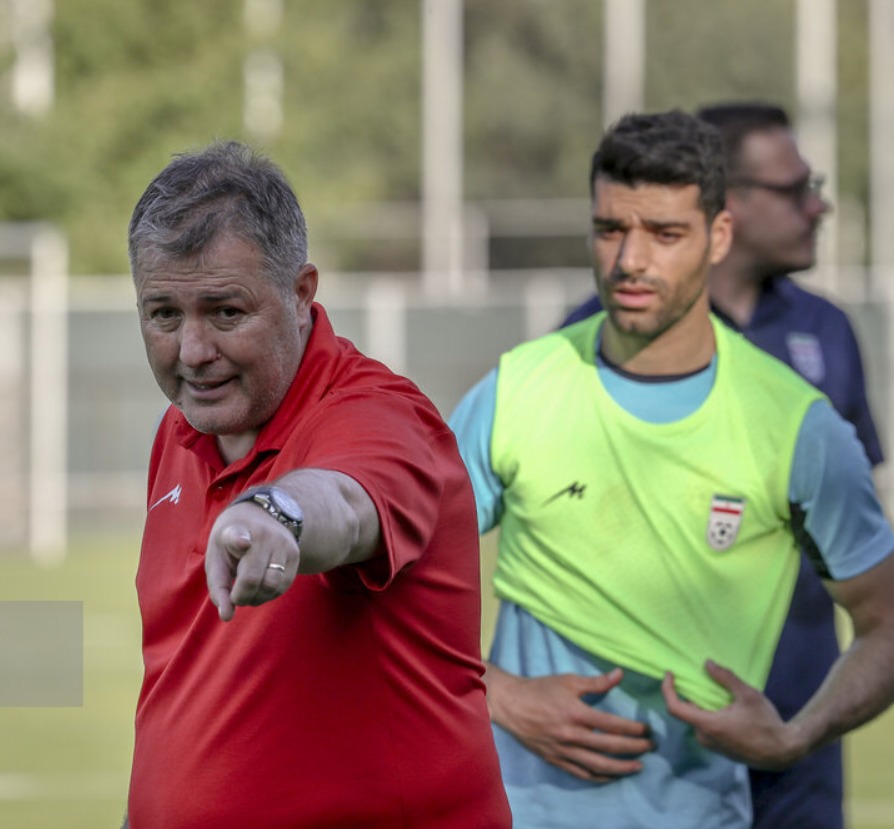
On the other hand, the opposition by some players in the squad such as Ehsan HajSafi, Alireza Jahanbakhsh, Karim Ansarifard, Mehdi Tarimi, etc., with the continuation of the Croat man on the bench, is still strong leading HajSafi to travel all the way from Athens to Tehran for just a few hours just to cast his vote for Mehdi taj in the elections. Hajsafy’s flight schedule was so tight that he took special permission to cast his vote even before the ballots were open as his return flight departure was tight. He stayed a few hours in Tehran only and that highlighted the desperation of this group against Skočić.
Taj has blatantly shown that he has no interest in Skocic staying. After taking office, the president who returned to the football federation initiated the project of Carlos Queiroz’s return to Iran as a top priority. To ensure all matters and contract details are ironed out, Mehdi Taj had a facetime meeting with the Portuguese coach.
Queiroz was fired from his last post in two managerial/coaching posts. After he left Iran, he took over Colombia in 2019.
In the FIFA World Cup 2022 qualifications, Colombia’s performance slipped disastrously, with a 0–3 home loss to Uruguay (its worst ever home loss for 82 years) before being shockingly thrashed 1–6 by Ecuador, and this finally put the end of Carlos Queiroz’s reign as Colombia’s boss.
On 8 September 2021, Queiroz was employed by Egypt FA.
Egypt qualified for the third round of the World Cup qualifications to face Senegal for a spot in the World Cup in Qatar. However, after a 1–0 win in Cairo, and a 1–0 loss in Dakar, Egypt lost in penalties; hence, they failed to reach the final competition. He later agreed with the Egyptian Football Association to terminate his contract by mutual consent.
The failure of Egypt in qualifying for FIFA World Cup 2022 occurred despite the availability of World Class players Mohammed Salah of Liverpool in the squad,
In audio and video calls with Mehdi Taj, Queiroz put his demands, terms, and conditions on the table to Mehdi Taj who seems to have accepted Queiroz’s personal and financial terms outright in the same manner that he did the Wilmots contract. but Taj, this time needs not only the approval of the Football Federation’s Board of Directors but also the consent of the high-profile opponents of Portuguese man, and that includes personnel in the corridors of the Ministry of Youth and Sports.
Queiroz left with only a handful of friends in 2019 after Iran’s drubbing by the Japanese team in the semi-finals of the AFC Asian Cup. That 3-0 loss was the biggest in over thirty years. Many members of the parliament, the Islamic Council, are not too keen on the return of the vindictive and confrontational coach who does tend to intimidate anyone who opposes him or his ideas.
To demonstrate how evidently anti-Skoci Mehdi Taj is, In the past week since he won the election, Taj has yet to hold any meeting with Dragan Skocic or Hamid Estili and to demonstrate for all that he is still not convinced and unwilling to see the Croat at the helm of Team Melli.
The new management team of the Football Federation is actively pursuing the dismissal of Skocic, while there is still some strong support for the Croat from other borad directors such as Mirshad Majdi. However, Taj lobby seems to be gaining ground but the number of his supporters is on the rise.
Taj needs the signature of five other members of the board of directors to formalize the contract with Carlos Queiroz. Mehr reporter has been informed that seven of the board members are completely in favor of Queiroz’s return in order to appease Mehdi Taj who has put this issue at the top of his priorities.
The struggle and the politics to determine the head coach of Iran’s national team continues while the 2022 World Cup starts in nearly 75 days. The FIFA Day games schedule also shows that there are only 17 days to hold national team camps in September and November.
Assuming All matters are sorted out, any coach needs to have divine power to turn the fortunes of Team Melli which is suffering from a serious loss of confidence, form, and mental stress from the infighting between the two groups of players within the camp.
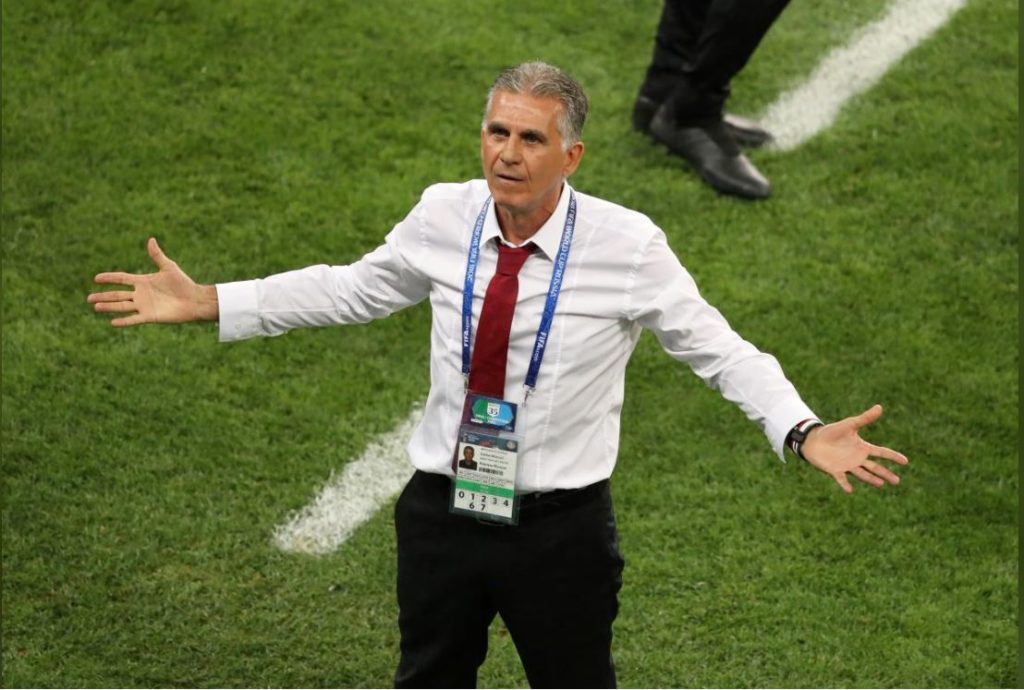
Carlos Queiroz, if selected certainly does not have such divine power as he failed to demonstrate any in the 8 years at the helm of Tema Melli. What he has, however, are two vital elements, one of which is to his personal benefit and that is his professionalism in contract negotiation. He had learned the shortfalls of the previous contracts and how easily the FFIRI repeatedly fails to honor the financial terms of contracts. Taking that into consideration, he is dictating all the terms on a desperate Mehdi taj and that includes contract payments in US dollars deposited in a foreign bank, most possibly in Dubai plus no promises of any success in the FIFA World Cup 2022. Time is too short for proper preparation, and no one can dispute that, can they?
The second attribute is the strong no-nonsense character that he has demonstrated time and time again. He will have no second thought about kicking sulky or indisciplined players such as Taremi out of the squad. There is no such thing as players’ powers in the Queiroz dictionary. The reality is, that Iran’s football needs a decisive character like Queiroz else some immature players will wreck the ship.

